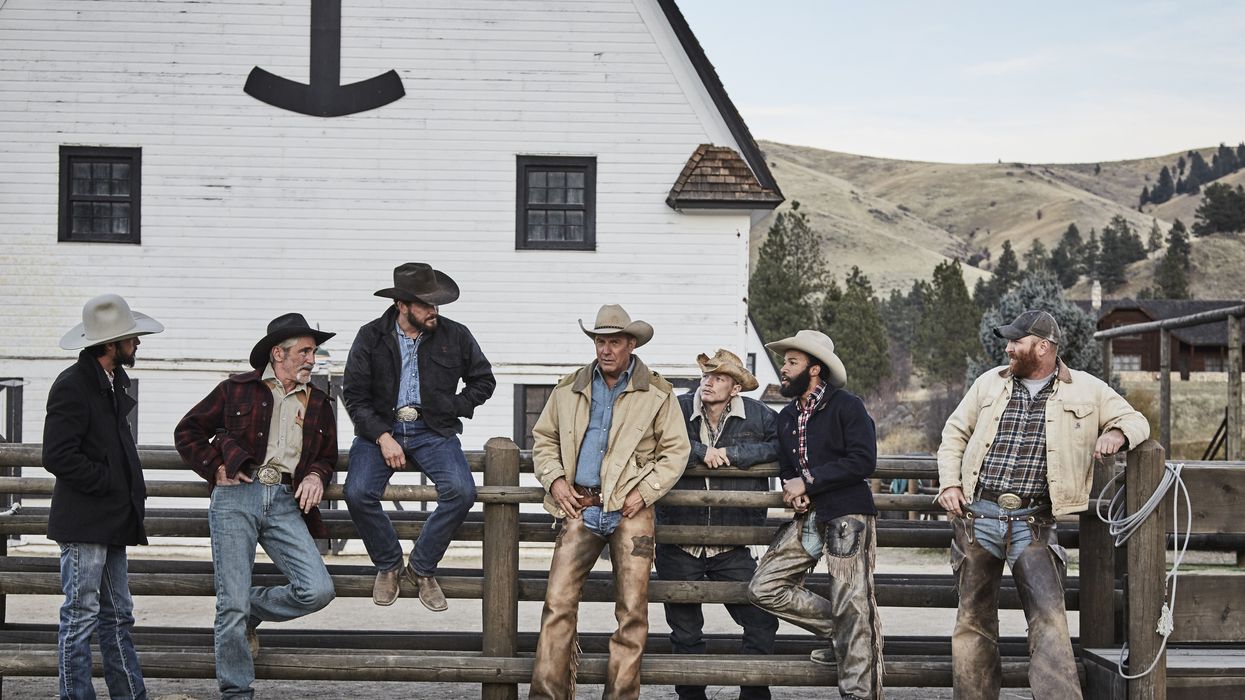Why Are There Almost No Think-Pieces on 'Yellowstone'?
Almost 11 million people watch a weekly show that feels like it deserves dozens of deep dives, but we have none.

Look, if there's one thing we maybe don't need more of in the world, it's think-pieces. But I have to admit, sometimes it's nice to see someone else dissect the themes and story of your favorite shows. It can give you a deeper critical understanding of the series and help you read between the lines of some of the messages and tropes. These are usually written about the most popular television shows. Lost had a ton of them. So did The Walking Dead, Game of Thrones, and even Succession.
Well, what if I told you there was a show drawing over 10 million viewers a week on network television that was somehow overlooked by critics?
Yes, I'm talking about Yellowstone, the show everyone seems to watch but no one seems to write about. While many called it "Redneck Succession," or more kindly, "Red State Succession."
Yellowstone is by far the most popular show on TV right now. It's rife with drama, romance, and politics, and it would seem like the perfect show for a lot of takes and critical dissection. And yet, we're left wanting. A recent write-up in The Guardian summed it up this way:
"Streaming was supposed to be the great equalizer, for either access to content (see: global megahits like Netflix’s Squid Game, the South Korean dystopian drama which reached a whopping 111m households worldwide in late 2021) or its segmentation into competitive platforms warring for their niche and slice of IP. Yellowstone presents a fascinating rebuke to these trends: a word-of-mouth hit in the heartland, for lack of a better term for the loose but distinct geographical segmentation in the US, and a phenomenon of cultural silos between urban-skewing consumers of premium cable and ex-urban (smaller cities surrounded by agricultural land, suburbs, small towns, rural communities) consumers of basic cable."
This question of why no one is talking could elicit lots of snarky answers.
It could be that people think the show is just an overblown soap opera, or it could be they want me to say something before they do. But I think there is general amazement at how a show like this could feel so overlooked. Perhaps Yellowstone is the perfect episodic experience to sum up where America is right now, divided so drastically that ignorance of the perceived "other side" is bliss.
And yet, while that would be an easy argument, it's hard to really suss out. Sure, Yellowstone is about wealthy white cowboys who colonized the west in the late 1800s, taking Indigenous land for their own and refusing to give it back, even as people come calling now.
But they're not exactly the good guys in the show. In fact, Indigenous storylines in the early seasons strongly condemn the Dutton family's actions. There are well-developed POC storylines that challenge the notion of stereotypes and subtly slip in that the idea of land and land ownership is a privileged and possibly outdated notion as the west catches up with the family. While there's unfathomable wealth on display, it's juxtaposed against the people who have been exploited to keep one family in power.
That's a glimpse of something you rarely see in Succession.
This is not an argument over which show is better, but more of an idea to show that these titles, while composing rich white families with internal issues, actually have a lot less in common than most people think. Aside from family archetypes, Yellowstone is more about the changing American value system and how it reflects a way of life that has no idea how to cope, whereas Succession is much more about the greed and backstabbing it takes to remain relevant and in power.
Perhaps the lack of think pieces comes from the fact that Yellowstone is still a network television show, with episodes popping up on Paramount+ when they end, but only accessible live on that channel or CMT. Still, over 10 million people in the middle of the country, so-called "flyover" states, find it weekly. This Nielsen map below shows that the show is most popular in southern cities. Millions talk about it, though it rarely trends on social media.

In an interview with Viacom/CBS, Laurel Weir, head of research for Paramount Network, said that Yellowstone gives audiences a glimpse into the lives of Americans who aren’t typically on TV.
“We are not going after portraying the coasts, there’s a trend across the country where viewers want to be exposed to worlds and cultures that they don’t normally see, but they can completely relate to the story and the struggles of the characters. We’ve seen the show pop in the middle of the country.”
Steve Greene wrote for IndieWire,“Sure, there isn’t a bevy of other series exploring life in the various corners of Montana. That’s what makes it exciting when Yellowstone jettisons its overly familiar petty family tussles playing out on a grand scale... Beyond the simmering father-child tensions, there’s a vast world of stories within Yellowstone left to explore.”
We understand generally why the show is popular, but I think the idea of why no one is talking about it still has a lot left to explore. If you have ideas, we'd love to know about them.
Let us know in the comments.











